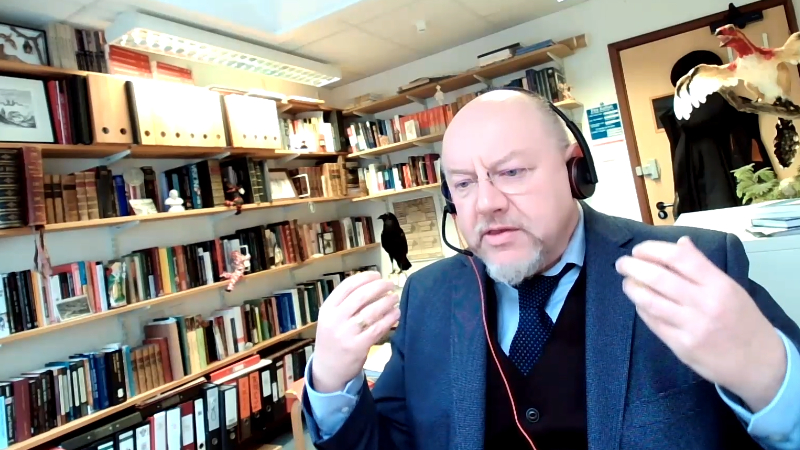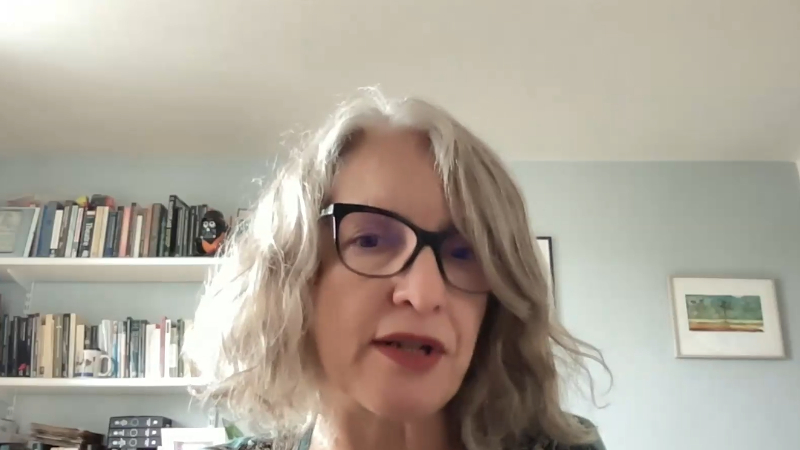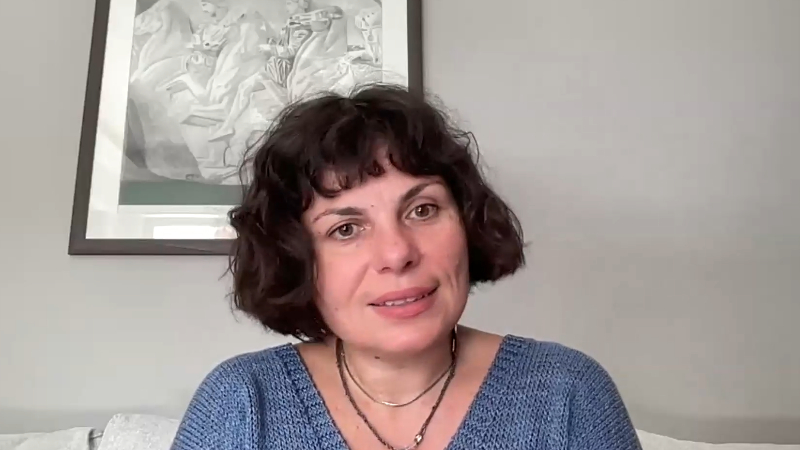Ghosts and the supernatural: three Oxford Brookes University experts discuss their research

Why are we fascinated by the supernatural? Three Oxford Brookes University academics discuss what the concept of ghosts - real or a figment of our imaginations - tells us about history, psychology and our own relationship with grief, loss and mortality.
Johannes Dillinger is Professor of Early Modern History at Oxford Brookes. He is an expert on the history of witchcraft and magic and is currently researching a new book about ghosts, and beliefs in ghosts, in southern Germany.
Very many people believe in ghosts today, and even people who do not believe in ghosts seem to encounter strange phenomena from time to time. Things that go bump in the night, objects moving by themselves, poltergeist phenomena, or even apparitions of people they know to be dead.
I don't want to be judgmental. I don't say this is all nonsense, such stuff doesn’t happen. I'm an agnostic as far as ghosts are concerned. I want to find out what people believe in, and I am willing to consider the evidence.
Our curiosity is by no means new. Ghosts were sensational news in the 17th and 18th centuries, although people then didn’t necessarily believe in them. People were sceptical and not everyone was willing to believe everything. So we have a continuity here. People are still interested, we want to hear about ghosts, but we are not willing to believe everything.
As a historian, I can ask what did people regard as a ghostly apparition and how did people try to explain it? What categories were used? How did these categories change over time? As a historian I do not ask if ghosts exist or if it’s all superstition and nonsense. I want to know what people thought at the time about these questions, how did they imagine ghosts?
Ghosts leave a paper trail. There are official reports about hauntings written by early modern bureaucrats who had heard about ghostly apparitions and began to investigate.
We have their reports, we have the letters they wrote to their superiors. We have their correspondence from time to time with the Church. We get a direct insight into the way people imagined ghosts to behave. They describe ghostly phenomena, often in great detail.
The interesting thing is we still today describe ghostly phenomena in the same way. We still seem to be willing to interpret strange phenomena as being people coming back from the dead and trying to come into contact with the living again.
By looking at the history of ghosts and ghost beliefs, it becomes easier for us to understand modern, so-called paranormal phenomena, on a deeper level.
Beverley Clack is Professor in the Philosophy of Religion at Oxford Brookes. Her current research is focussed on themes of failure, loss and death. She recently published an academic paper entitled ‘The Wisdom of Ghosts’.

Why is it that in a scientific age we still love ghost stories? You don’t have to look far in the TV schedules or at podcasts to see that we love hearing strange tales about hauntings.
I’m interested in what that interest might say to us about the human condition, because I don’t think these are just forms of entertainment, I think there’s something deeper going on with our love of these stories.
I’m really interested in how they open up both the wonder of being human and the terror of being human. So, the wonder of being human – the fact that we're always seeking to know more, to think more, to engage more with our world. Then also the terror of that experience, that we are human beings who know that one day we will die. So how are we to make sense of that knowledge? And is there something about these stories that gets us to think more deeply about what it is to be human?
‘The Wisdom of Ghosts’ might sound like a strange title because we might think ‘is there any wisdom to believing in ghosts, aren’t they just strange stories that we entertain ourselves with?’ The paper engages with that question by thinking about some very big philosophical themes, including the fear of death, and what death might mean for ourselves, but also for those we love.
I’m working on a book on death, working title ‘How to Talk about Death (And Not Freak Out)’. There's a tendency, I think, for us to hide from the fear of death. What the ghost story does is to say, ‘Hey, we can engage with these things’. We can think about our fears and perhaps we can then start thinking a bit more about what it means to live rich, full lives now, because sometimes we seem intent on reducing what it is to be human to acquiring money or stuff.
Perhaps, in the figure of the ghost, we have something that's reminding us that we're far more than that, and that there might be something about how we think about ourselves in relation to the rest of the universe that’s really important.
Dr Tatiana Kontou is a Senior Lecturer in 19th Century Literature at Oxford Brookes. She is researching the link between ghostly children in Victorian literature and psychoanalytic theory, and how these help people process grief and loss.

I've written a book called ‘Spiritualism and Women's Writing from the fin de siecle to the neo-Victorian’ where I came across accounts of bereaved mothers who were not finding solace in religious tracts or consolation literature. Even though they were sceptical at times, they would attend seances, like the 19th century author Florence Marryat.
Florence attended a seance in order to write a piece for a journal article on spiritualism, and encountered a spirit child. The child told Florence she belonged to her and she had grown, in the spirit world, into an almost 10-year-old girl. Florence had lost a newborn baby who had died shortly after she was born. This was incredible, a wonderful moment of reunion, and it turned Florence into an avid spiritualist.
She became an advocate of spiritualism and it enabled her to process her loss. I’m interested in these reunions that happen through spiritualism, and in the psychoanalytic writings of the time and the writings of Freud in the early 20th century. These are writings on mourning, melancholy and how we process grief. I’m interested in how we do a lot of work within ourselves to be able to live with loss.
My new work is on lost and revenant children and how they're represented in Victorian literature. In spiritualist accounts and ghost stories where children appear, they are not always ghosts seeking vengeance. They are ghosts that need to have a connection with those living, or create connections with almost surrogate parents.
I’m also looking at Donald Winnicott’s work. Winnicott was a twentieth century psychoanalyst and worked as a paediatrician in the NHS. He wrote about how play enables us to have a capacity to be alone, but it is also a space where children bring together their inner world and their external world. These two states that we tend to think of as almost binary are amalgamated in play.
Winnicott went on to say living creatively is a form of play. This is a really interesting idea, because in spiritualism, and particularly in seances, these spirit children would enter the dark room and go to their relatives. They would interact with them and speak to them or hug them or kiss them.
I started reading this as a form of play. I acknowledge that it might have been parents who were really mourning and wanted comfort. They would feel like they were participating in something that might or might not be happening. But I think that the experience was authentic. The feelings were authentic, the desire to reunite with the child was authentic. So this idea of the ghost child in Victorian literature and seances, started to develop, alongside psychoanalytic thinking to do with loss.
You take the absence created by loss and metabolise it into something that can allow you to make life more bearable. It’s using absence as a space where relationships can continue developing, that if you can hold someone in your mind long enough, you can sustain thinking, having almost a thought form of what has been lost in your mind that enables your relationship to continue.
The poet Emily Dickinson says in one poem ‘One need not be a chamber to be haunted’. That’s very much how I think about ghosts. As we grow older we grow in the capacity to think of those that are absent because they are deceased or are not in our close vicinity. I think we become hosts to these ghosts.
